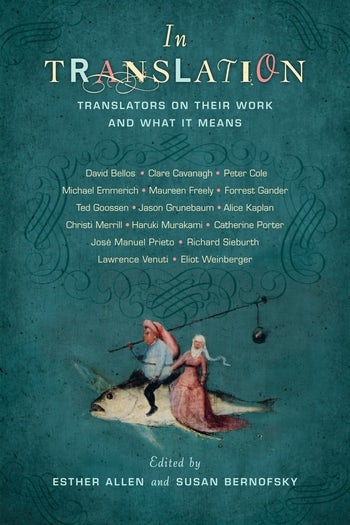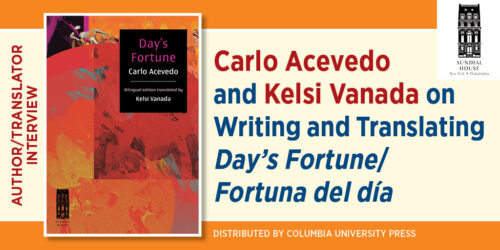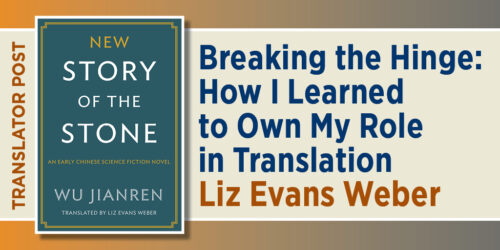Haruki Murakami on Translating The Great Gatsby

“To fully grasp its essence, I had to plunge into its heart—then and only then could his writing burst into bloom.”—Haruki Murakami on translating The Great Gatsby
In the Translator’s Afterword, Haruki Murakami’s essay in In Translation: Translators on Their Work and What It Means, the novelist discusses the challenges he confronted when translating The Great Gatsby into Japanese. The novel is one of Murakami’s favorite (and apparently it’s being made into a movie….)
To the best of my recollection, I was in my late thirties when I started telling people I was going to translate The Great Gatsby when I turned sixty. Having made that pronouncement, I then conducted my daily affairs as if I were moving toward that .xed point, so that much of what I did was pushed along by a kind of reverse calculation. Metaphorically speaking, I had placed Gatsby securely on my kamidana, the high shelf that serves as a household shrine to the Shinto gods, and then lived my life glancing up at it from time to time.
For some strange reason, however, it became harder and harder to wait till my sixtieth birthday. Restlessly, my eyes sought the book in the shrine more and more often until I finally had to give in. So, three years ahead of schedule, I sat down to work on this translation. Initially I told myself that I would just pick away at it in my spare time, but once I got going I found I couldn’t stop, and I finished the whole translation with unanticipated speed, in a single burst of energy. I was like the impatient child who can’t wait until his birthday to open his presents. This tendency to jump the gun never seems to change, no matter how old I get….
In the case of The Great Gatsby, I found that none of the translations I looked at satisfied me, regardless of their quality. Inevitably, I would think, This feels a bit (or a lot!) different from the Gatsby I know. I must hasten to add that this reaction was personal, based on the image I carried in my mind, and had nothing at all to do with objective—or academic— critical assessments of the works at hand, such evaluations being beyond my power anyway. All I could do was scratch my head at how wide the gap was between “my Gatsby” and the impression I received from the translations—this again from a purely subjective perspective. I don’t normally discuss my reactions to others’ work so frankly. But this is The Great Gatsby we are talking about, so I am willing to stick my neck out.
Put differently, I translated Gatsby at an extremely personal level. I wanted to make my long-standing image of Gatsby clear and concrete, so that readers could picture the distinct colors and contours of the novel and feel its textures. To do this, I strove to eliminate anything that was the slightest bit obscure or that might leave the reader feeling as if they had somehow missed something.
I have always felt that translation is fundamentally an act of kindness. It is not enough to find words that match: if images in the translated text are unclear, then the thoughts and feelings of the author are lost. In this particular case, I tried hard to be as kind a translator as possible. As I went over passage after passage, I attempted to clarify the meaning of each in Japanese to the best of my ability. Still, as with everything, there were limits. All I can say is, I tried my best.
I have written of the crucial importance that The Great Gatsby holds for me. As a responsible translator, therefore, it behooves me to try to explain that importance in more concrete terms.
When someone asks, “Which three books have meant the most to you?” I can answer without having to think: The Great Gatsby, Dostoevsky’s The Brothers Karamazov, and Raymond Chandler’s The Long Goodbye. All three have been indispensable to me (both as a reader and as a writer); yet if I were forced to select only one, I would unhesitatingly choose Gatsby. Had it not been for Fitzgerald’s novel, I would not be writing the kind of literature I am today (indeed, it is possible that I would not be writing at all, although that is neither here nor there).
Whatever the case, you can sense the level of my infatuation with The Great Gatsby. It taught me so much and encouraged me so greatly in my own life. Though slender in size for a full-length work, it served as a standard and a fixed point, an axis around which I was able to organize the many coordinates that make up the world of the novel. I read Gatsby over and over, poking into every nook and cranny, until I had virtually memorized entire sections.
Remarks such as these are bound to perplex more than a few readers. “Look, Murakami,” they’ll say, “I read the novel, and I don’t get it. Just why do you think it’s so great?” My first impulse is to challenge them right back. “Hey, if The Great Gatsby isn’t great,” I am tempted to say, inching closer, “then what the heck is?” Yet at the same time I am not without sympathy for their point of view. Gatsby is such a finely wrought novel—its scenes so fully realized, its evocations of sentiment so delicate, its language so layered—that, in the end, one has to study it line by line in English to appreciate its true value. Fitzgerald was a master stylist, and when he wrote Gatsby at the age of twenty-eight he was at the absolute peak of his craft. Unavoidably, Japanese translations have stumbled over some of the fine points of his novel, while others have been entirely omitted. As they say, a delicate wine doesn’t travel well. Try as one may, it will lose at least a portion of its aroma, mellowness, and texture en route.
The only answer, I guess, is to read a work such as Gatsby in the original; yet that is more easily said than done. The beauty of Fitzgerald’s fluent, elastic prose lies in his ability to alter tone, pattern, and rhythm to create infinitesimal shifts in atmosphere. To be perfectly honest, a work that achieves this stylistic level is too difficult for a person with limited English to comprehend—only a truly advanced reader is able to see what he is really up to.
This is why, if I may be allowed to exaggerate in a somewhat high-handed manner, it is my impression that Japanese readers have never truly appreciated The Great Gatsby. At the very least, judging from the overall reaction of those I have exchanged views with (most of whom are, at least to some extent, professionally connected to the literary world), I can only be pessimistic about Gatsby’s reception in Japan. And standing behind this pessimism is the imposing barrier of the translation process itself.
I cannot be so presumptuous as to claim that my translation of Gatsby clears that barrier entirely. No one is more aware than I am of what a heavy undertaking it is to translate Gatsby, so I am not being falsely modest when I concede that my effort, too, is bound to have some faults. Whoever looks hard enough, I fear, can probably locate any number of places where I have failed. Yet is there a way of transferring a work of such beauty and completeness in English into another language without the occasional failure?
Until Gatsby, I had always tried to keep the fact that I was a writer far from my mind when translating: I wanted to make myself invisible, like a black-garbed puppet handler on the Bunraku stage. What mattered, I believed, was fidelity to the original. True, my being a writer had to be involved to a certain degree, since it formed part of the context I brought to the work, but that was something that arose naturally, without any conscious intent on my part. Gatsby, however, was a different story. From the outset, I set my sights on putting my novel-writing experience to as good a use as possible. This did not mean that I translated loosely or substituted my own phrases for those of the original. Rather, it meant that, at strategic moments, I brought my imaginative powers as a novelist into play. One by one, I dug up the slippery parts of Fitzgerald’s novel, those scattered places that had proved elusive, and asked myself, If I were the author, how would I have written this? Painstakingly, I examined Gatsby’s solid trunk and branches and dissected its beautiful leaves. When necessary, however, I stepped back to take a broader view, forsaking a word-by-word approach. Had I gone about translating Gatsby any other way, I wouldn’t have been able to convey the power of Fitzgerald’s prose.
To fully grasp its essence, I had to plunge into its heart—then and only then could his writing burst into bloom.
9 Responses
Leave a Reply
You must be logged in to post a comment.




I wonder what Haruki Murakami will think of the new movie. I hope he writes a piece about that!
Oh, boy. So unfair. I am informed that I will never fully enjoy the complexity of The Great Gatsby because of my bad English and, at the same time, challenged to study Japanese to savour this translation…
“As they say, a delicate wine doesn’t travel well.” I agree. When I read a translation of a Murakami book, I sometimes get the impression that due to translation something got lost. It’s easy to translate the words, but how to translate the culture ?